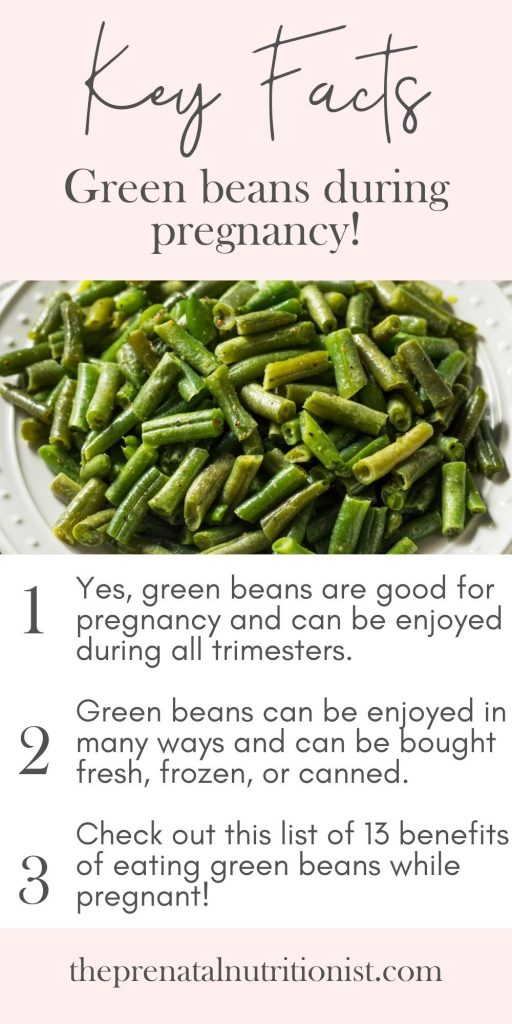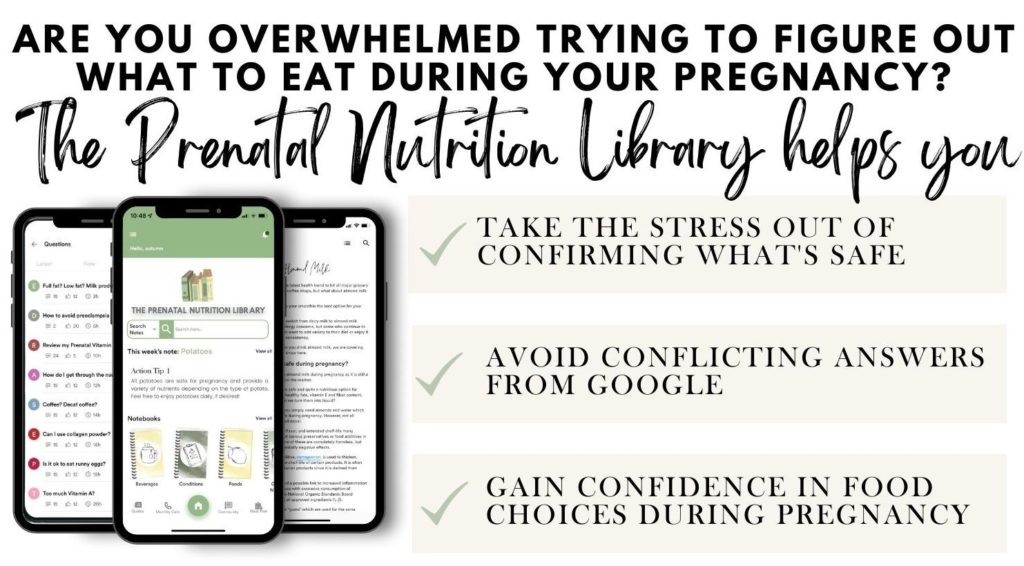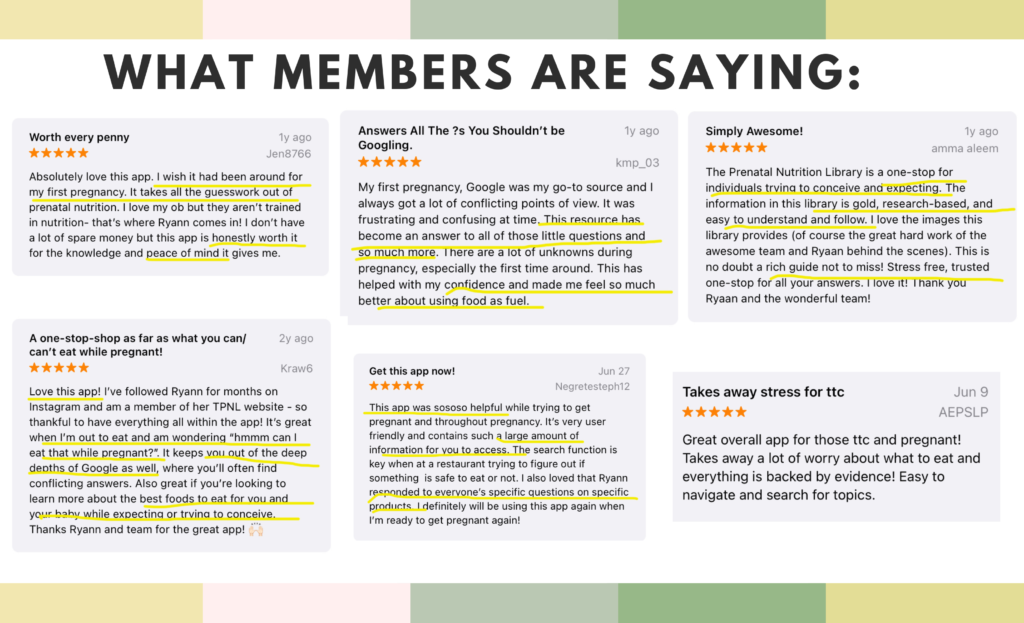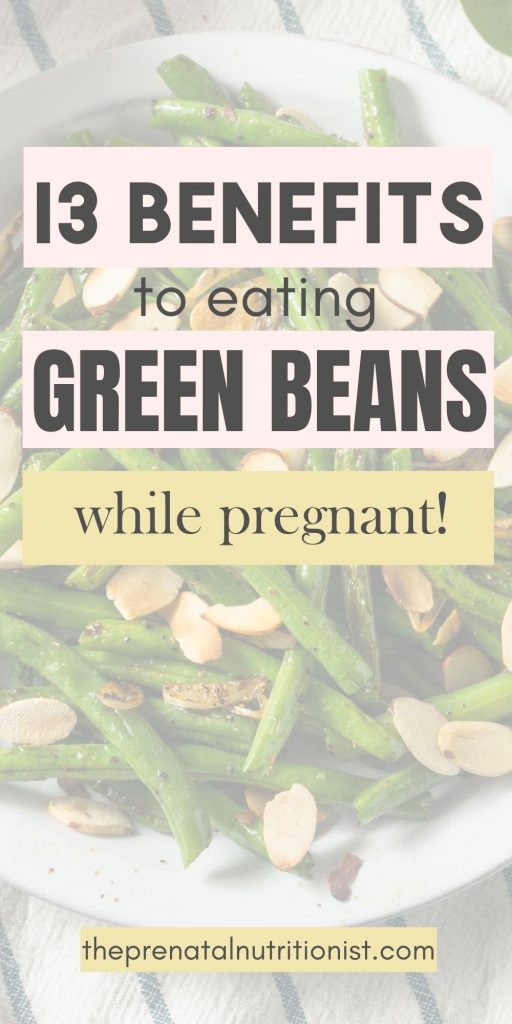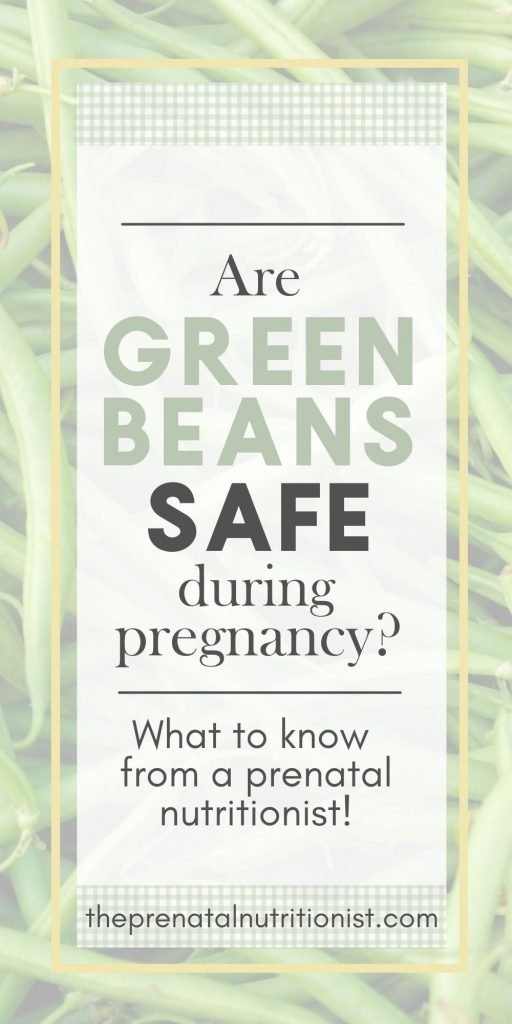
Eating a healthy, well-balanced diet is essential during pregnancy, and eating a variety of vegetables is crucial. Vegetables, as a whole, are a great addition to your pregnancy diet, but vegetables do vary in their nutrient content and the benefits they provide during pregnancy.
To clear up some of the confusion, I’m dedicating this post to talk about whether green beans, also known as french beans, are a good and safe choice for pregnancy, what their health benefits are, and how to consume them safely not to get a foodborne illness—everything you need to know about green beans.
Are Green Beans Good For Pregnancy?
Yes, green beans are a good choice for pregnancy!
They are one of the most recommended vegetables for pregnant women. You can safely eat green beans during all three trimesters of pregnancy as long as you stick to those that have been appropriately prepared.
To ensure they are safe to eat during pregnancy, fresh green beans should be washed thoroughly with water. Frozen green beans should be stored according to the instructions on the package. As for canned green beans, stick to store-bought cans that aren’t damaged, and be cautious about any green beans that have been canned at home. Don’t eat fresh, canned green beans unless you trust the source!
Green beans are so popular among pregnant people for many reasons. One serving of green beans, approximately one cup, provides about 5% of the daily recommended folate intake. Folate is a B vitamin, B9, that supports the growing baby’s development and reduces the risk of certain birth defects. But green beans have many other benefits as well for your pregnancy!
Green Beans Benefits For Pregnancy
Green beans may help prevent neural tube defects.
As mentioned above, french or green beans are rich in folate, which has been shown to reduce the risk of neural tube and other birth defects. Folate is important for many other functions during pregnancy as well.
Green beans can boost your mood.
The folate, or vitamin B9, in green beans may also help to support your mental health and wellness. Vitamin B9 is a natural mood booster.
Green beans provide a boost of iron.
Green beans have some non-heme iron and magnesium. The body needs more iron during pregnancy to ensure the fetus gets enough oxygen through the blood supply. Iron helps blood cells carry oxygen throughout the body. If you don’t consume enough iron, you risk becoming anemic. One of the best ways to prevent anemia and ensure the baby is getting plenty of oxygen is to eat iron-rich foods—this helps to provide a slight boost of iron. Learn more about a good source of iron for pregnancy inside The Prenatal Nutrition Library.
Green beans help regulate blood sugar.
Green beans are perfect for pregnant women with gestational diabetes. This is because they have a low glycemic index, so when you eat them, they don’t cause the glucose level in your blood to rise rapidly. The dietary fiber in green beans also helps to stabilize blood sugar.
Green beans are rich in vitamin C.
French beans are also a good source of vitamin C, a powerful antioxidant that supports your immune system and protects your healthy cells from damage.
Green beans can help control weight gain during pregnancy.
Green beans are an excellent source of many vitamins and minerals and are also low in calories, which is why they are often touted as one of the best foods to eat to maintain a healthy weight during pregnancy. In addition, because they also provide dietary fiber, they help keep you fuller for longer and provide you with satiety until your next meal or snack.
Green beans are a good source of non-dairy calcium.
Calcium is crucial for growing strong, healthy bones. Getting enough calcium when you’re pregnant reduces your risk of developing conditions like osteoporosis while also strengthening the developing bones of your unborn baby.
Green beans promote heart health.
Green beans are rich in potassium, which regulates your heart and blood pressure levels. Maintaining healthy blood pressure is necessary during pregnancy to prevent conditions like preeclampsia.
Green beans are rich in fiber.
Because they are a good source of dietary fiber, green beans can help promote digestion and prevent constipation. Fiber is essential for maintaining healthy cholesterol levels in the body too.
Green beans are a good source of magnesium.
Magnesium is crucial for nearly every system in your body and your baby’s. It’s critical to ensure your nerves and muscles work correctly.
Magnesium also helps you to maintain healthy blood pressure levels. In addition, research suggests that getting enough magnesium during pregnancy could help prevent pregnancy complications and preterm labor.
Green beans help support the growth of your baby’s bones and cartilage.
French beans are also rich in manganese, a nutrient that plays an essential role in the growth of your baby’s bones and teeth and also cartilage. Learn more about manganese here.
Green beans help support healthy eyes for mom and baby.
Green beans are a good source of vitamin A, essential for both expectant mothers and unborn babies. For example, vitamin A helps pregnant women maintain good night vision while supporting fetal ocular health. This nutrient also supports the development of your baby’s other organs and immune system.
Green beans are an easy, versatile, and healthy snack or side dish.
There are so many different ways to incorporate green beans into your diet. Whether you toss them into a skillet with some olive oil and garlic or include them in a recipe for a more complex casserole with some soft cheeses, it’s practically impossible not to find a way to enjoy this super healthy food.
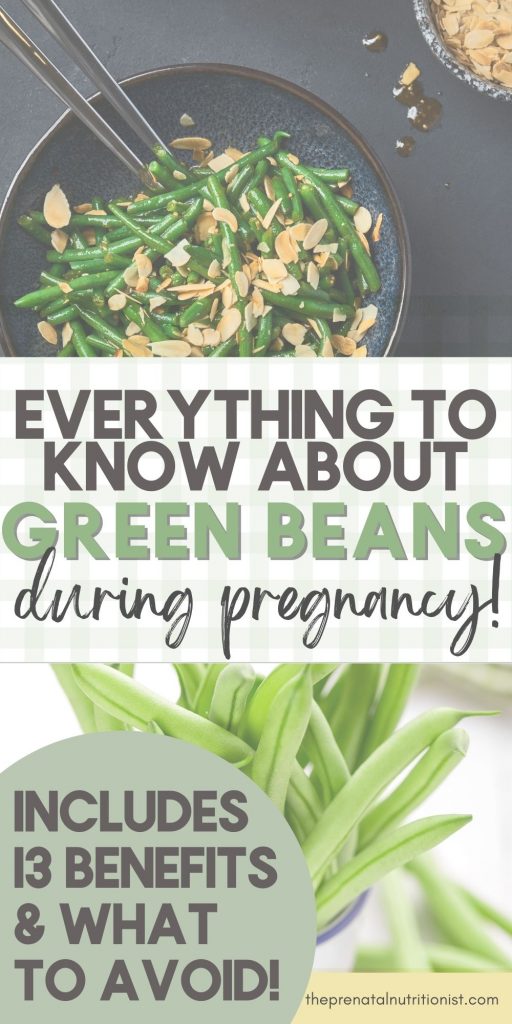
Green Beans To Avoid During Pregnancy
Eating raw or freshly picked green beans during pregnancy should be avoided because of the risk of contracting food borne illnesses.
According to the CDC, produce that has been cooked is the safest to eat. Therefore, fresh green beans should be thoroughly washed and cooked before eating them for the lowest risk. Although eating raw green beans isn’t harmful to you or the baby.
What is your favorite way to eat green beans?
Green beans are a versatile food with many delicious ways to eat them. How do you make them part of your pregnancy diet? Share your favorite green beans recipe below!
Then, check out The Prenatal Nutrition Library for more ways to maintain a healthy pregnancy and support your growing baby! It’s the most comprehensive library of prenatal nutrition information available, and the first searchable app for food during pregnancy. Download it here!
